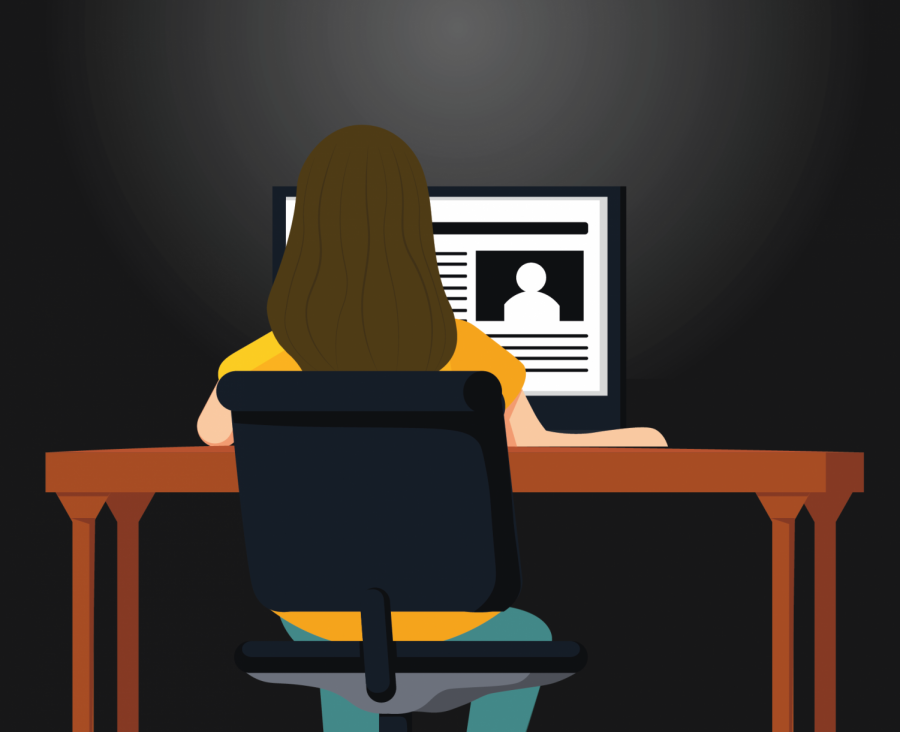Student’s mental health during the pandemic
October 1, 2020
As the University of North Alabama enters its sixth week of the semester, students are still adjusting to hybrid and online classes. At the beginning of the semester, many professors chose to make their classes hybrid, a combination of online and in-person learning.
“If you [students] haven’t had experience with this, it is very different,” said Andrea Hunt, the director of the Mitchell West Center for Social Inclusion. “You really need to make those connections with their faculty and use them as a resource. Map out your assignments and set a schedule so you’re not waiting until deadlines.”
With the implementation of online classes, students are having to adapt. Many students are not used to having to rely solely on themselves to keep up with due dates, assignments and readings.
“Although online classes are stressful for some students while others love it,” said Carmen Ritcher, the director of Student Counseling Services. “Online classes allow students more flexibility in their schedules giving them more time to do other things or simply to sleep a little later.”
Ritcher also said that students can have great experiences with online learning and can take rigorous classes. We often think of online learning as a bad thing, but there are times where face-to-face classes cause students stress as well. With online courses, students have to have personal time management.
We always compare it to face-to-face learning and make assumptions that everybody has had good experience with face-to-face learning, Hunt said. Some students struggle in the classroom due to anxiety or stress. Having online learning options is great for a lot of our students, but it doesn’t work for everyone.
Hunt added that for many students, online learning is not their first choice. It is because of this that they have not done it before. If we were under normal circumstances, students could have more options. Now, students have been put into this situation who were not prepared to personally motivate themselves.
While organizations at UNA are providing safe events, not all students are comfortable with potentially imposing themselves to the virus. In consequence, many are beginning to feel alone and isolated, Ritcher said.
“We have seen an increase in students reporting feelings of isolation and loneliness since the return to campus during COVID-19,” she added. “We are all having to adjust to this “new normal” and it is more difficult for some than others.”
Ritcher said that Student Counseling Services has noticed an increase in requests for individual counseling appointments this fall. Students do not have to wait until they are feeling extreme emotions.
“Some students will disconnect and just stop submitting work and attending classes due to stress,” said Hunt. “For others it may be where they come hypervigilant (a state of increased alertness).”
Stress can affect relationships as well. It can create issues within relationships as some people manage their stress through lashing out at those closest to them, Hunt said.
Stress can also affect physical health as well. As stress increases, some notice changes within their sleeping and eating habits. Physical and mental health go hand-in-hand, Hunt added.
“This semester is extremely overwhelming for me personally, and I’m sure for the rest of the students here,” said Julia Hood, a sophomore at UNA. “I thought my freshman year was stressful, but because of everything going on here, I’ve never been so overwhelmed.”
Students are having to adapt fast in order to keep up with their professor’s expectations. This process becomes more difficult when students are unable to socialize or get a break from their academics.
“… being bombarded by all of the assignments that are due, is not helping my ability to get through this situation,” said Hood. “If we were all having regular classes and nothing was wrong, we wouldn’t have near the amount of assignments we are presented with now.”
Hood said that she understands that the increased course load is to help students better understand the material, but it is too much to handle. As students try to balance classes, extracurriculars, jobs, relationships and their own mental wellbeing, something must give.
“I would say the most difficult part would be trying to stay on task, to stay motivated, and to manage my time in a way where I can still have some free time to put aside,” said Hood. “Being cooped up in a small room all by yourself really takes a toll on your mental health and school performance, personally.”
After being cooped up in her dorm room for the past five weeks, Hood has begun to associate her tedious schoolwork with feeling tired.
“The world right now just feels very grey,” said Hood.
It is difficult to remember what the world was like before the Coronavirus pandemic. As classes continue, it is important to find joy in anything we can.
Throughout its history, UNA’s students have survived the civil war, world wars, and economic depressions. The students of UNA will survive this pandemic and persevere through anything the world throws at them.
We are stronger than this and even though it might feel as if everything is going wrong, life will not always be this way.













